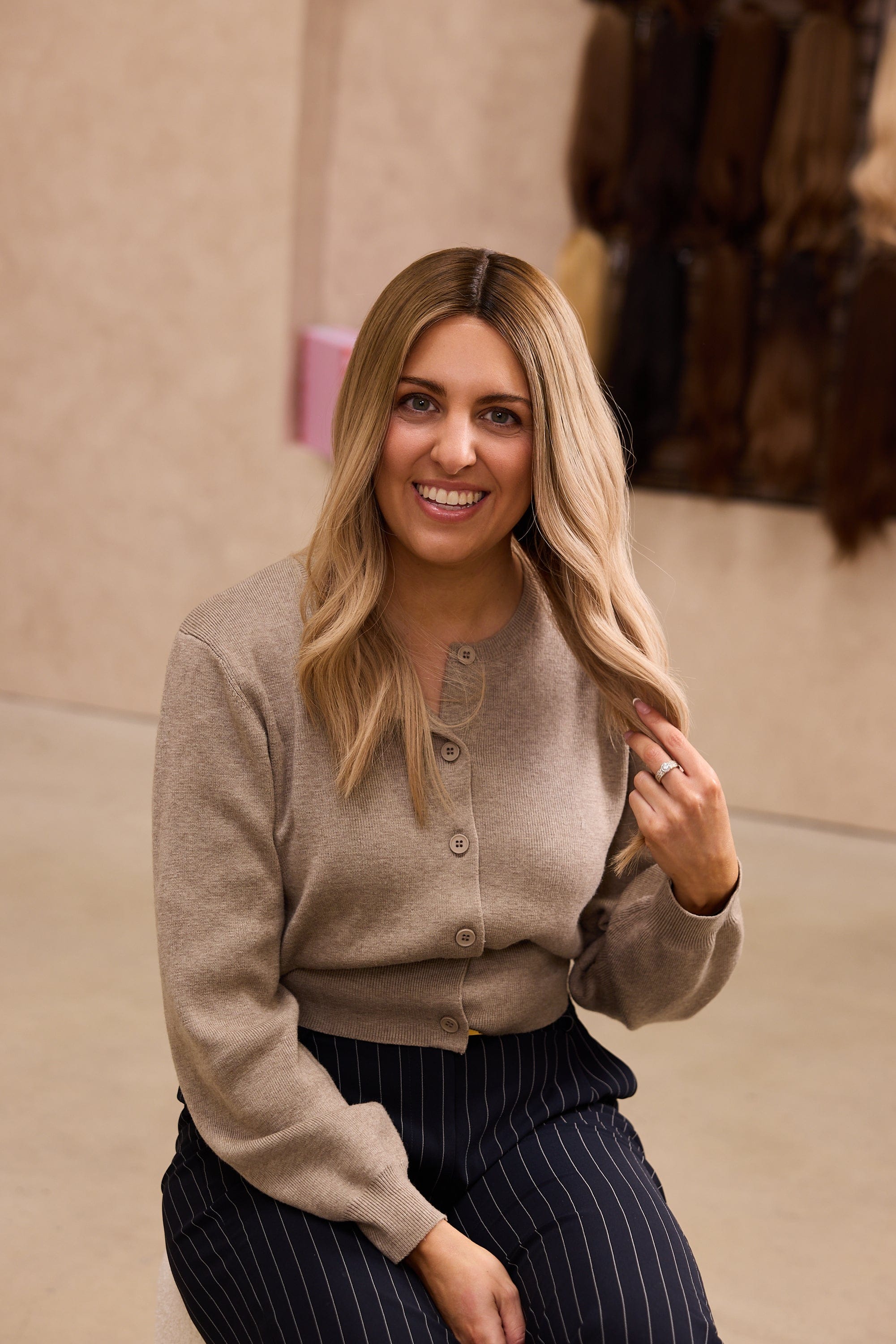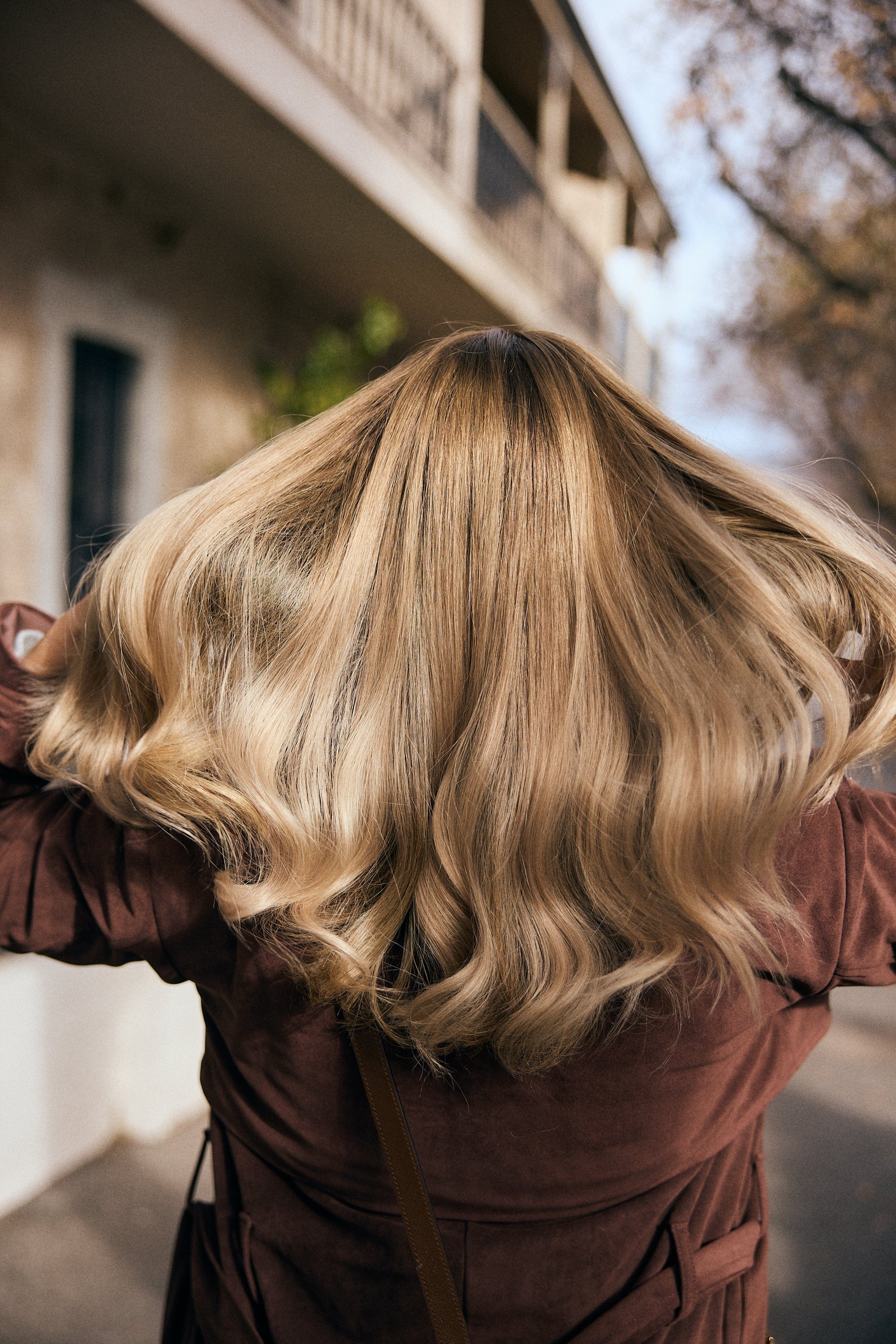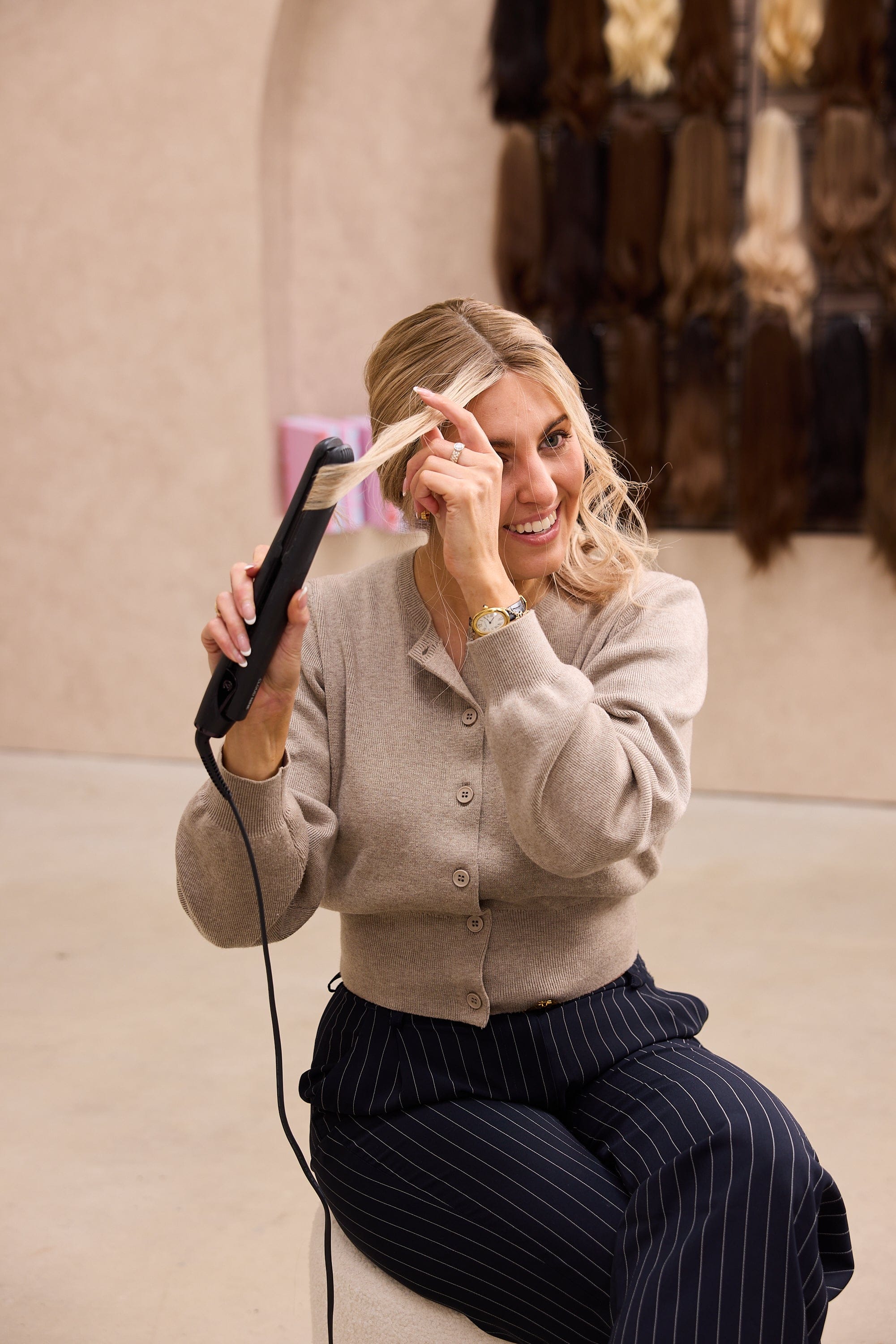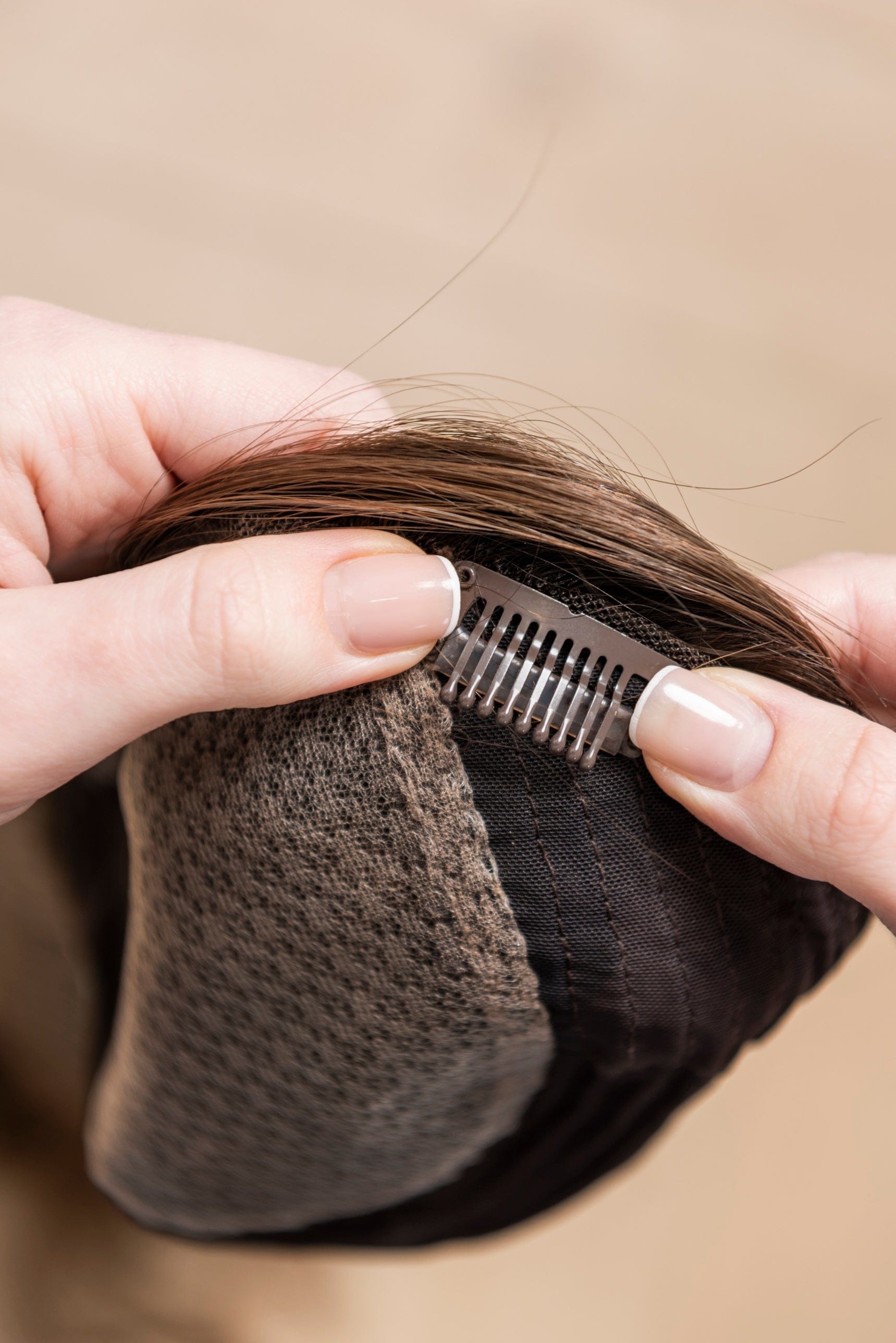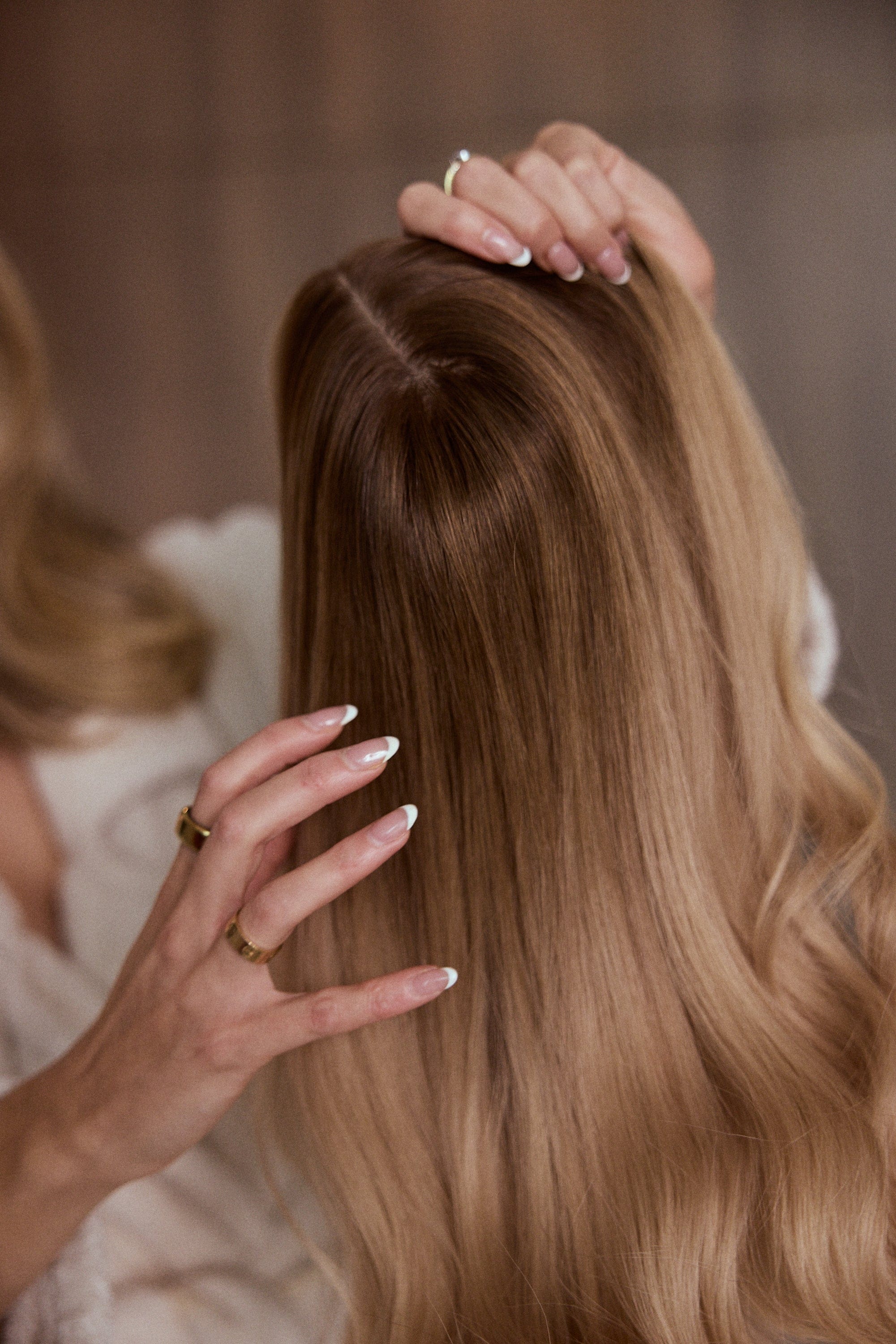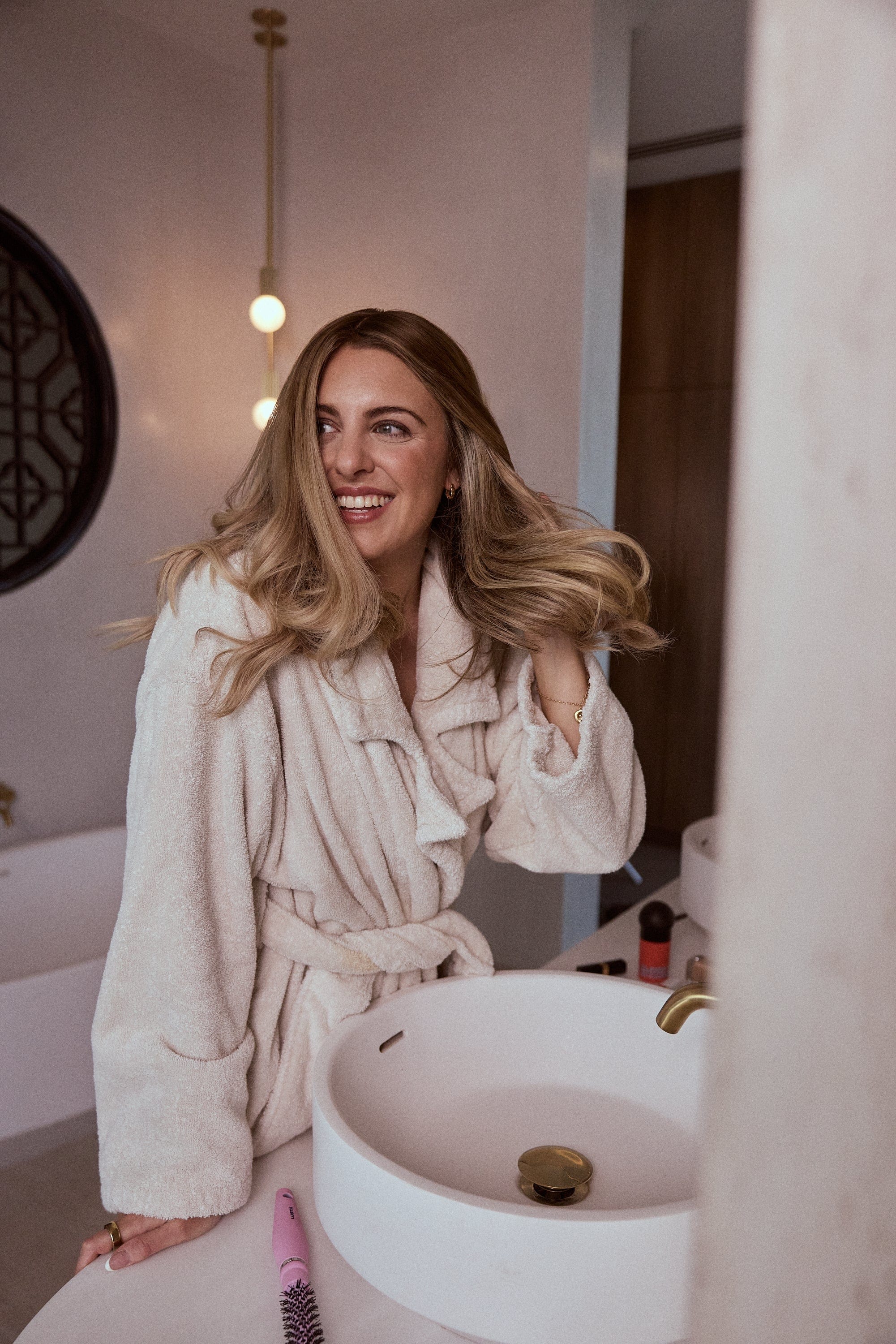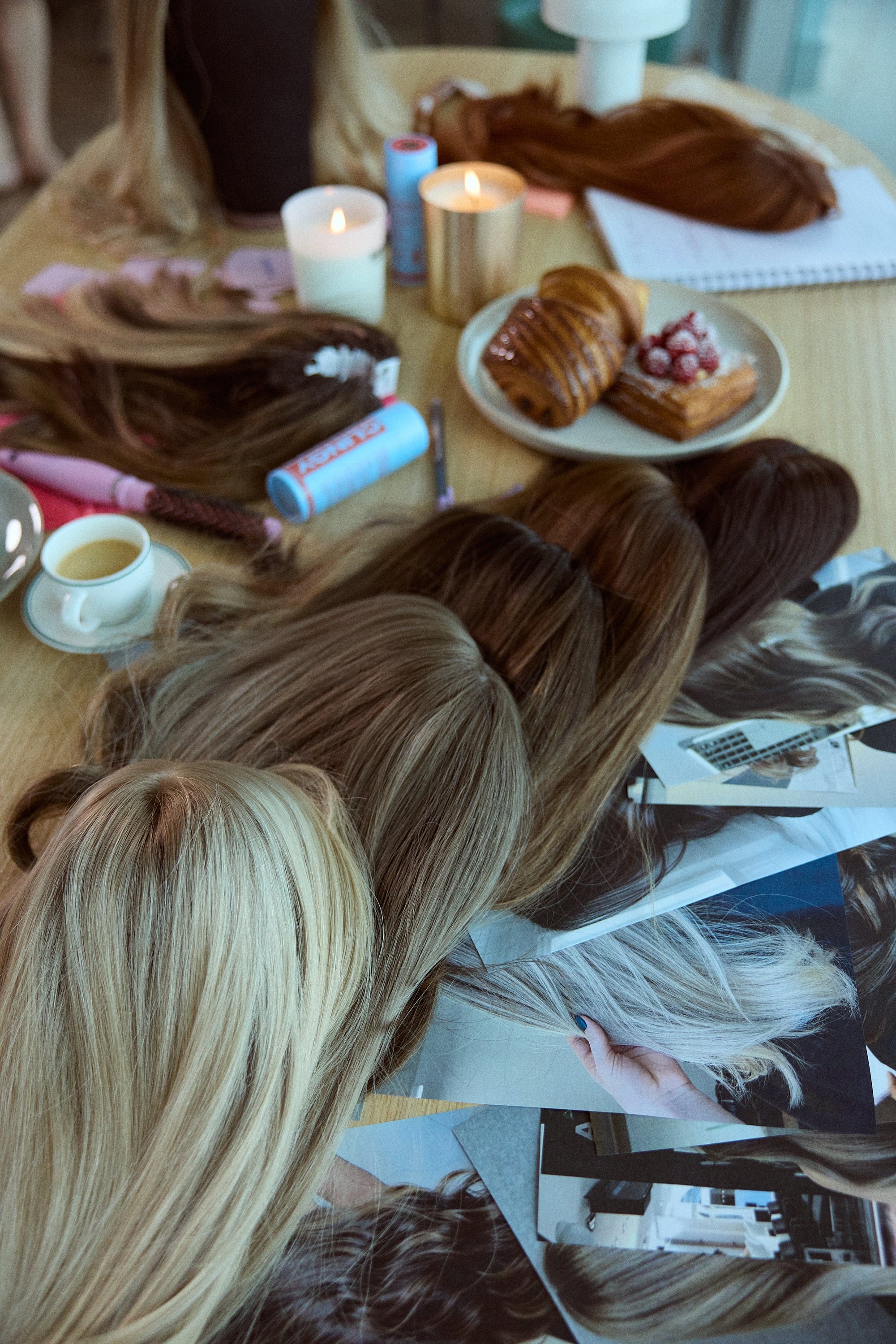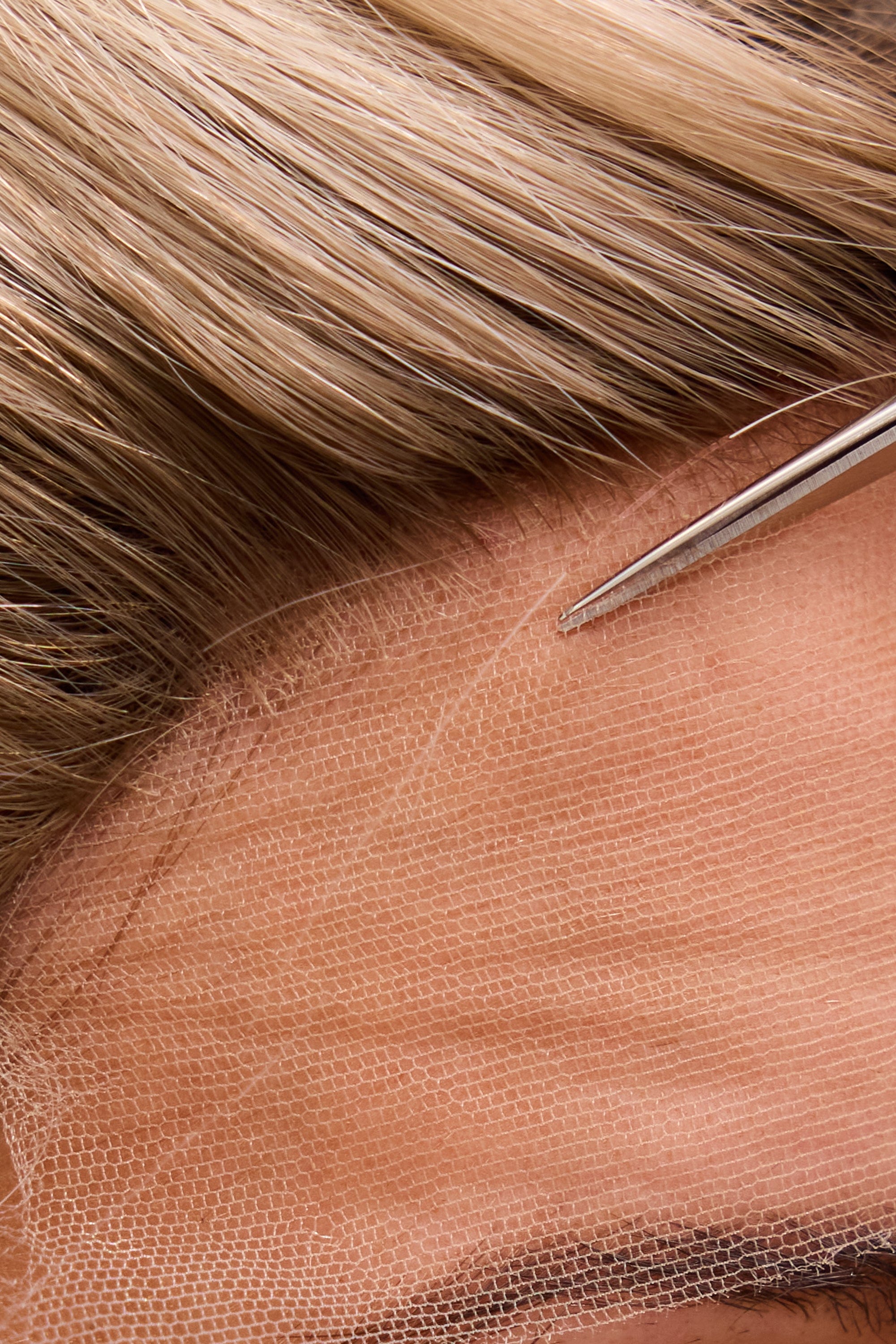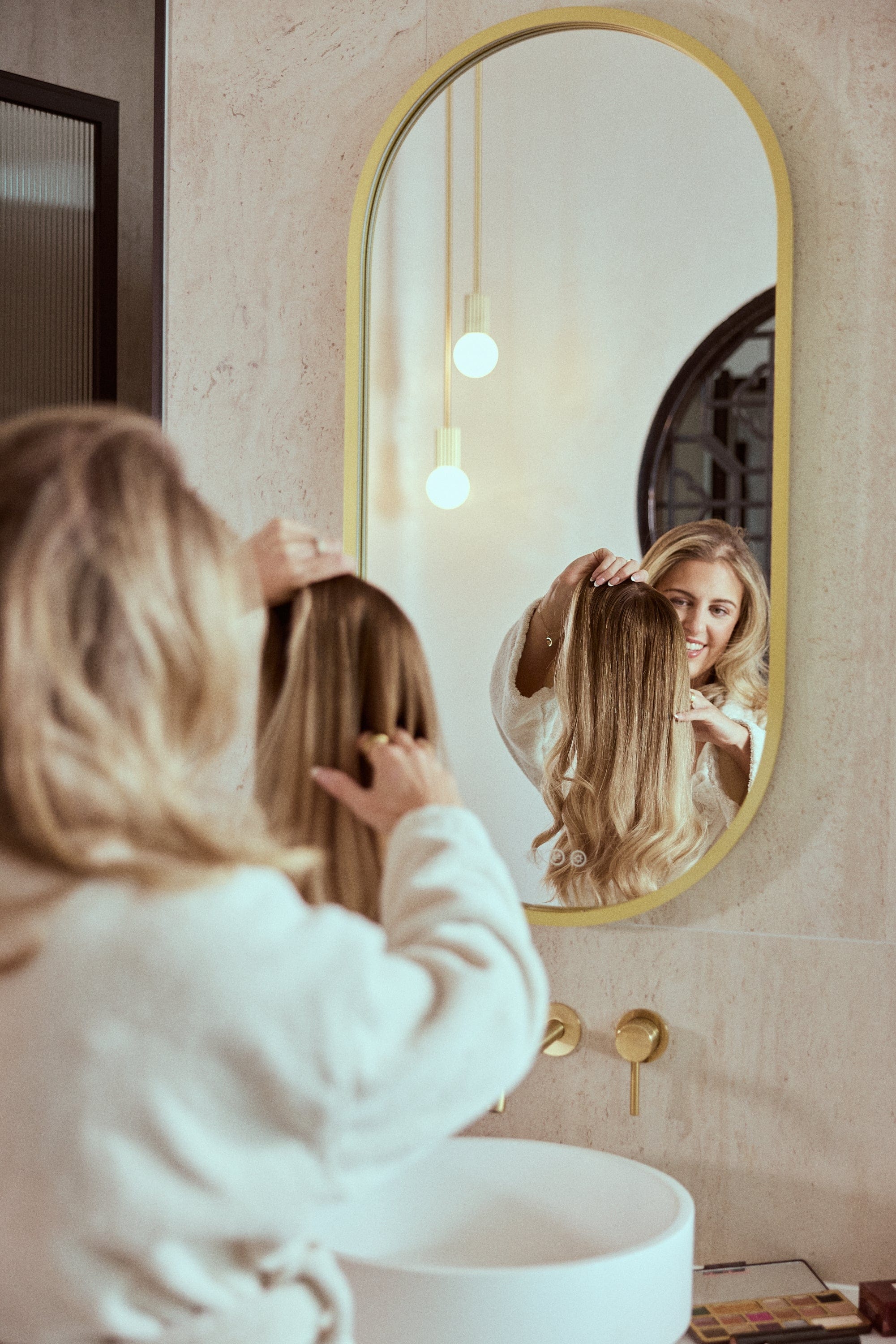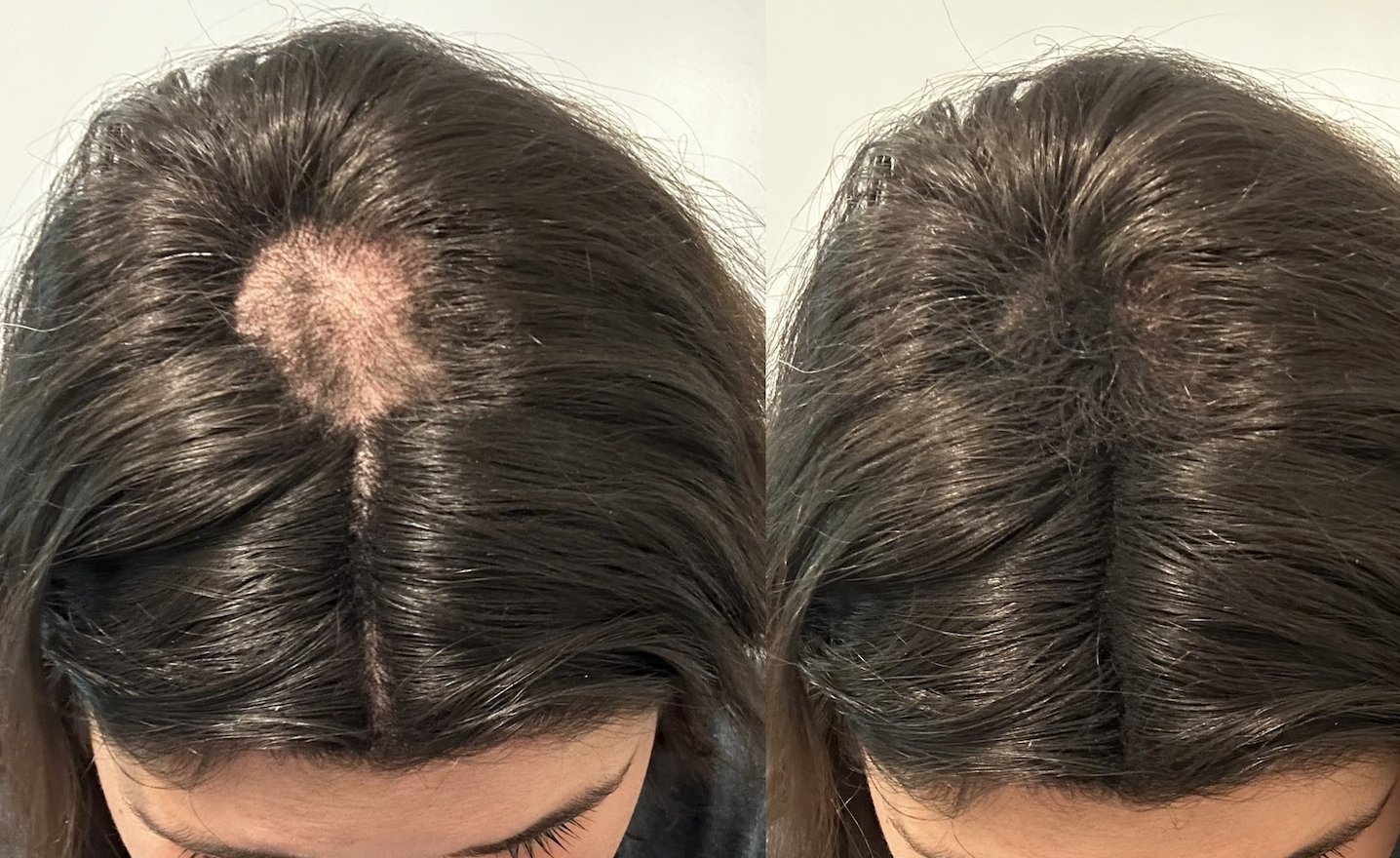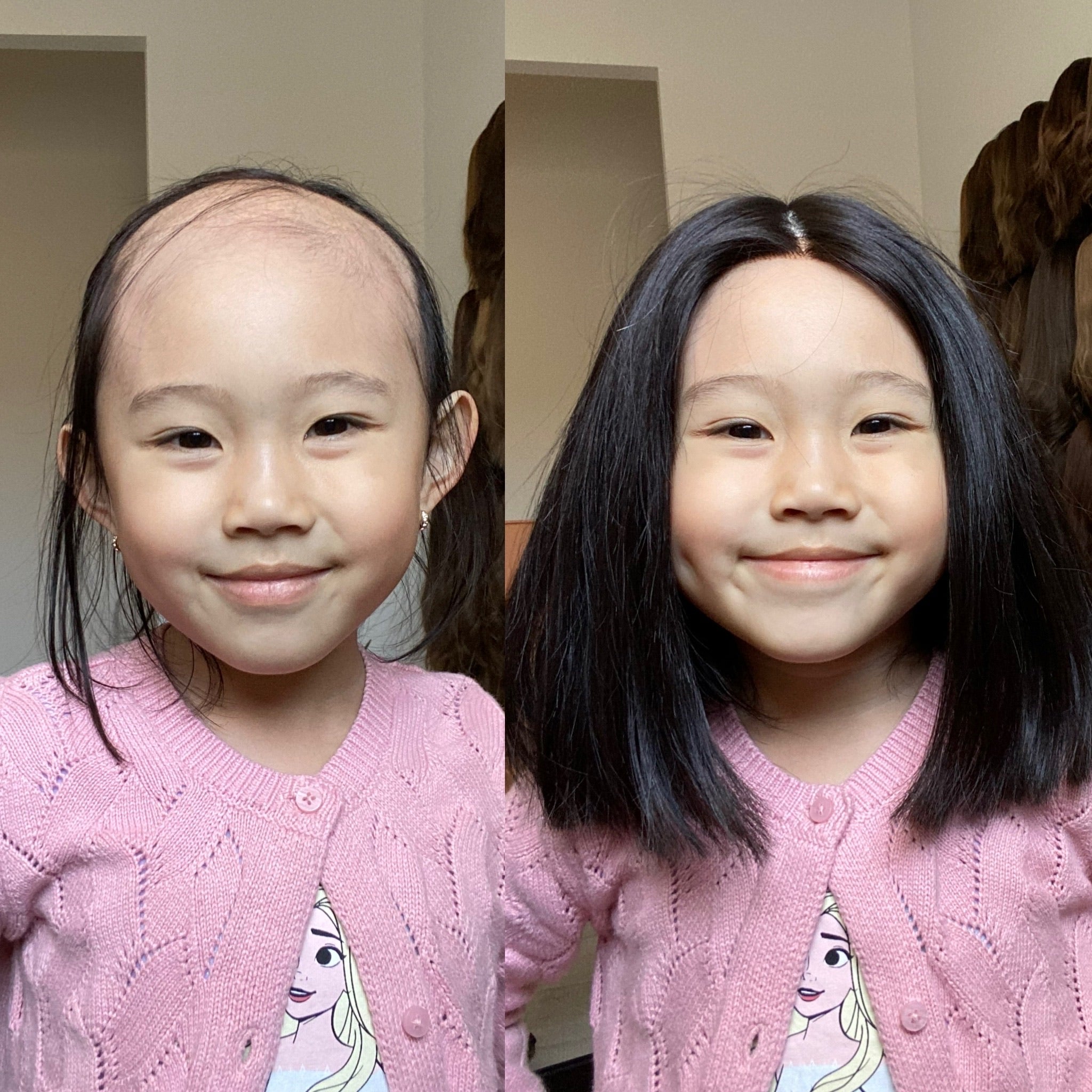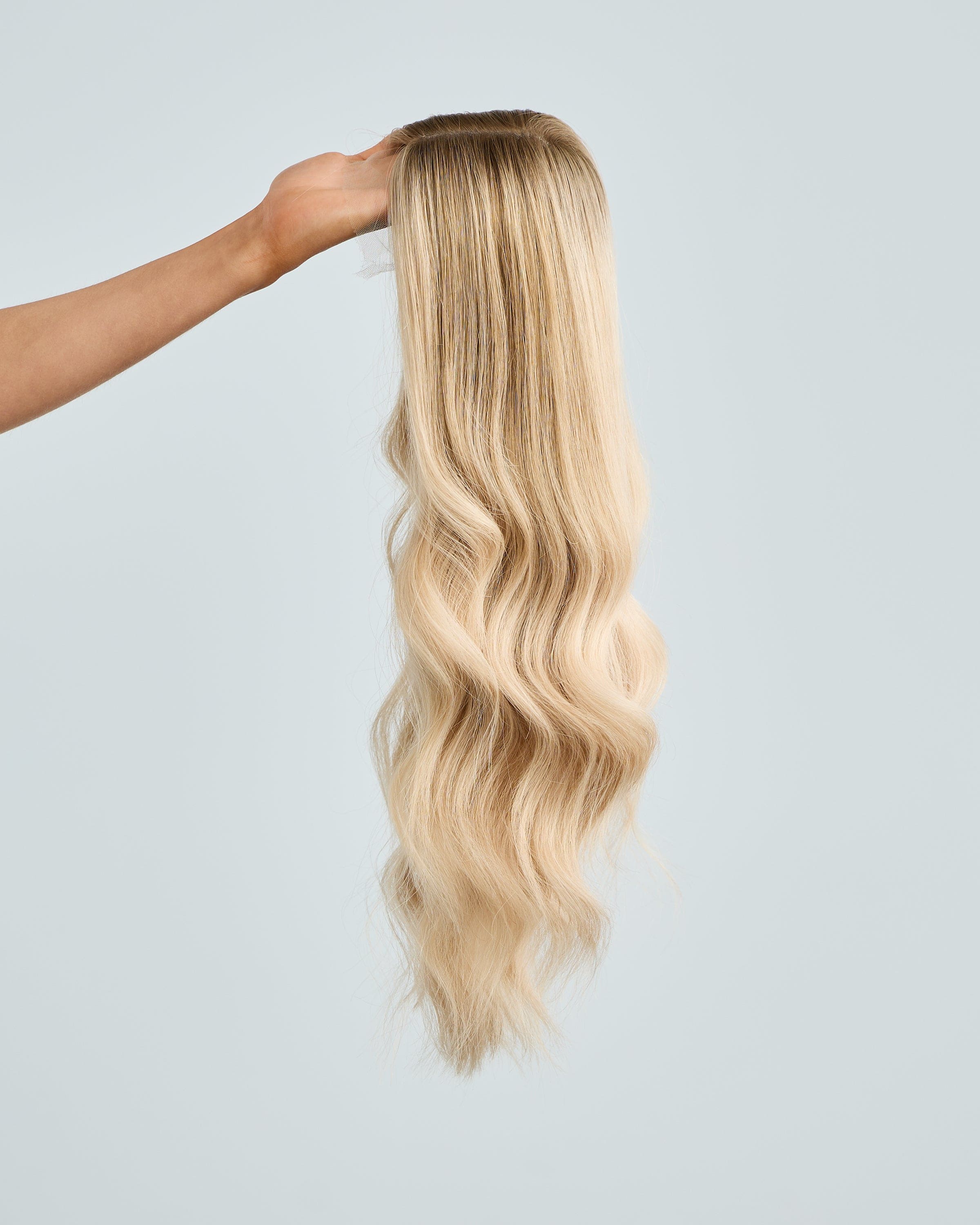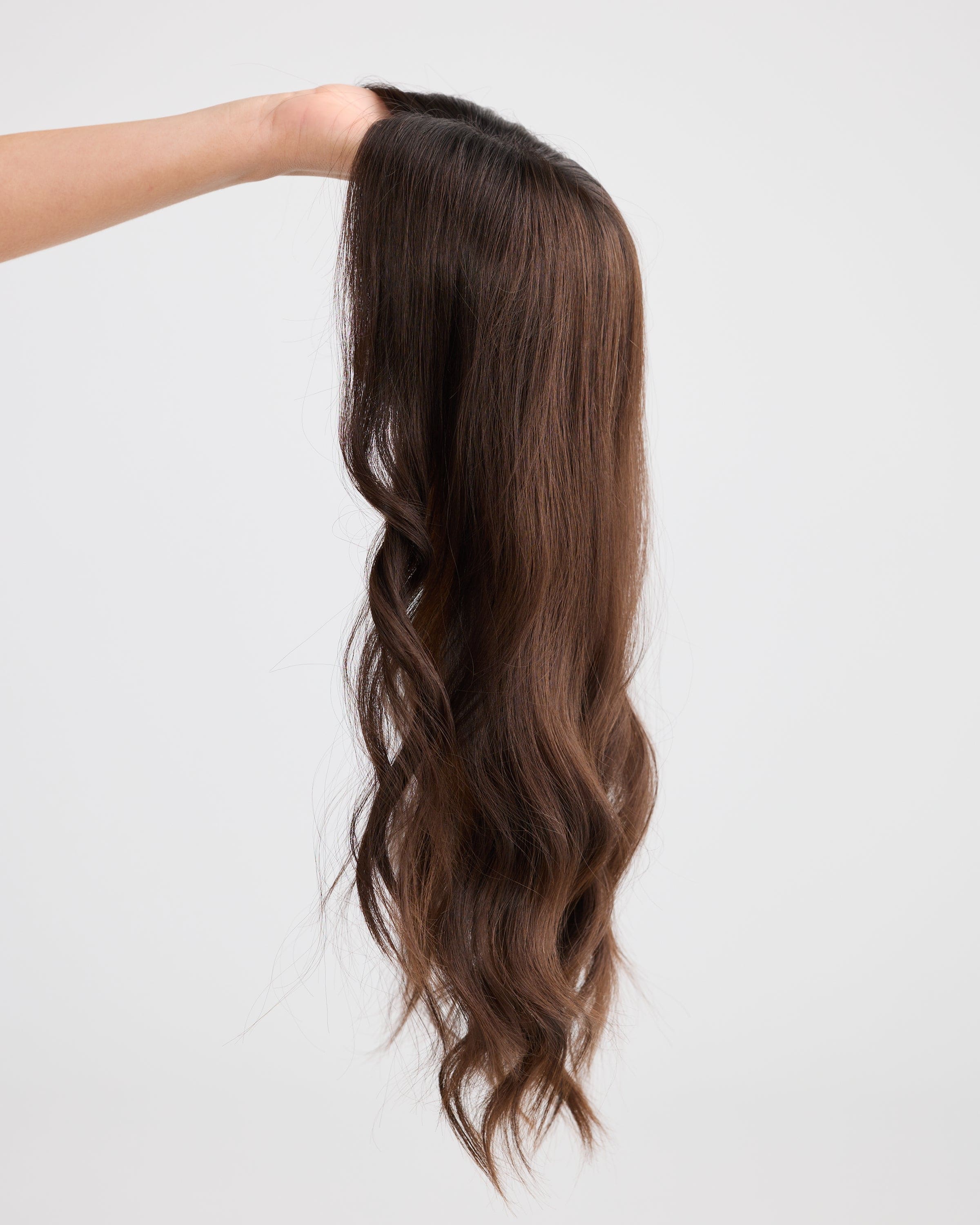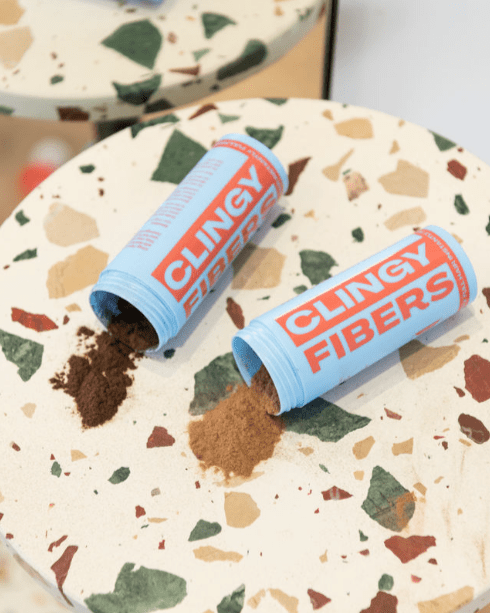You've just welcomed your own little bundle of joy into the world, you're getting used to new mum life and then.... your hair starts falling out. You've already got a million things on your plate and then you've got to add hair loss to the list? Ugh. Although it can be super scary to watch your hair fall out, know that you're not alone and this experience is completely normal. 1 in 2 women will experience post-partum hair loss.

Understanding Post-Partum Hair Loss
Post-partum hair loss, medically known as telogen effluvium, is a temporary condition experienced by many women after childbirth. During pregnancy, elevated hormone levels prolong the growing phase of hair, leading to fuller and thicker locks. However, after delivery, as hormone levels normalize, a larger number of hairs than usual enter the resting phase, eventually leading to shedding.
When Does It Start and How Long Does It Last?
Typically, post-partum hair loss starts around three months after childbirth and can last anywhere from six months to a year. The extent of hair loss varies from person to person, with some experiencing it more noticeably than others.
The Emotional Impact
While post-partum hair loss is a physiological process, its emotional impact shouldn't be underestimated. It can be distressing to see clumps of hair falling out, especially at a time when new mothers are already dealing with immense physical and emotional changes. It's important to acknowledge these feelings and understand that they are a valid part of the post-partum journey.
Managing Post-Partum Hair Loss
- Nutritional Support: A balanced diet plays a crucial role in hair health. Focus on foods rich in iron, protein, vitamins (especially B complex), and omega-3 fatty acids. Supplements like biotin and prenatal vitamins can also support hair growth, but it's important to consult with a healthcare provider before starting any new supplements.
- Gentle Hair Care: Be gentle with your hair. Opt for a wide-tooth comb, avoid tight hairstyles, and minimize heat styling. Consider using a volumizing shampoo and conditioner to add body to your hair.
- Avoid Stress: Easier said than done for a new mom, but stress can exacerbate hair loss. Try to find small ways to incorporate relaxation into your day, whether it's a short walk, meditation, or a favorite hobby.
- Hair Toppers: For those experiencing significant hair loss, hair toppers can be a great way to add volume and coverage. They come in various styles and colors, blending seamlessly with your natural hair.
- Clingy Hair Fibers: These tiny, cotton fibers are designed to cling to your existing hair, creating the appearance of fuller, thicker hair. They come in a variety of shades and can be a quick, easy solution for covering up thinning areas.
- Consult a Professional: If you're concerned about the amount of hair you're losing or if the hair loss persists beyond a year, it's wise to consult a healthcare provider. They can rule out other underlying causes and provide appropriate guidance.
Embracing the Transition
It's crucial to remember that post-partum hair loss is temporary. Your hair cycle is simply readjusting back to its pre-pregnancy state. Be patient and kind to yourself during this transition. Remember, your body has done something incredibly powerful and transformative in bringing new life into the world.
Support and Solidarity
If you're struggling with post-partum hair loss, know that you're not alone. Many new mothers go through this, and sharing your experiences can be both therapeutic and empowering. Talk to friends, join new mom groups, or engage in online forums. Sharing tips, stories, and support can make a big difference.
Final Thoughts
Post-partum hair loss, though a natural part of the post-birth journey, can be challenging. By understanding what to expect, practicing gentle hair care, and seeking support, you can navigate this phase more comfortably. Remember, this is just one chapter in your incredible journey of motherhood, and like all chapters, it has its end. Be gentle with yourself, mama. You're doing great!As always, stay tuned to our blog for more insights and support on all things hair. Whether it's celebrating the good hair days or finding solutions for the not-so-good ones, we're in this together.


